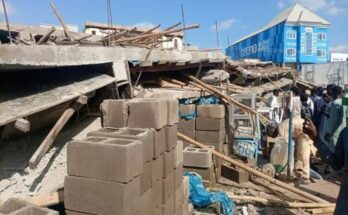By Chijioke Okoronkwo
The Federal Capital Territory (FCT) is facing a number of challenges, ranging from dearth of infrastructure, in some quarters, to insecurity.
However, the Federal Capital Territory Administration, which is led by Senator Bala Mohammed, has devised a number of strategies towards tackling these challenges in order to make Abuja one of the top 20 capital cities in the world by the year 2020.
In a recent chat with journalists, Mohammed said his administration was armed with a mandate ranging from the provision of effective and efficient administrative framework, provision of critical infrastructure, wealth creativity, poverty reduction, provision of services to residents to the need to ensure a safe and secure environment, adding that an internally generated revenue (IGR) of between N500 billion and N600 billion is targeted annually.
He further explained that “a radical change in policies and an aggressive tax drive are underway in the territory.”
Lack of potable water is one of the challenges being faced by residents of satellite towns and rural areas in spite of the inauguration of the multi-billion naira Lower Usman Dam in Bwari. Explaining the reason, the minister said: “The water projects executed by the present administration are currently producing a well-refined 30 million gallons of water per hour.
“The projects we have embarked upon will serve the entire city of Abuja for the next 50 years. This includes the yet-to-be-developed 79 new districts; though with challenges of connectivity and distribution, especially to the satellite towns. The FCT water sector requires about N4 billion to N5 billion. But, as it stands, the whole of FCT budget is N37 billion. So, we can only prioritise the necessary sectors in order to ensure that the other sectors get their fair share of attention. As a result, I have allocated N1.5 billion and I am glad that the contractors are ready to deliver. Another of our problems is that most of the water facilities in Abuja are over-stretched because people from neighbouring states put serious pressures on the facilities.”
Coming to insecurity, Mohammed debunked the insinuations in some quarters that the multi-billion Naira Close Circuit Televisions (CCTVs) installed in strategic points in the city centre stopped working even before the Nyanya bombings.
According to him, the cameras aided the security agencies in tracking the perpetrators of the dastardly act as they were of high quality.
“It’s not true that the CCTVs are not working. The CCTV is working in Abuja. The police and the State Security Service (SSS) have separate CCTV. Any time there is an incident, security agencies fall back on the information there and that is why we are getting results. I’m equally not aware of any foreign government offering to assist with installing better CCTVs in the FCT either for free or cheaper rate.
“What happened is this. I had wanted to carry out procurement for 500 CCTVs for the FCT and the Federal Government offered 1,000 with FCT, Lagos and several other cities with close to over 600 repeater stations all over the country. I’m not aware of procurement of CCTV with Korean company but that was my initial plan to procure 500 CCTV stations for the FCT. But the Federal Government lent support and increased it to 1,000 stations. The Federal Government had the intention of taking the project to the major cities in Nigeria. That project was meant to capture the entire country.
“However, the one at Nyanya was not taken into consideration and that was why they can’t have a fall back of what really happened in that bomb explosion. What we are doing now is to lend support to the Federal Government to conceptualise the project and implement it across the major cities in Nigeria to strengthen security of lives and properties.
“In Abuja now, we are working hard to ensure that all roads leading into the FCT are captured with functional CCTV cameras that are powered by both solar and electricity generating set”, he said.
He, however, added that the FCTA, just like government in all quarters, needs the supports of the residents in order to deliver its people-friendly policies effectively. (NAN)



